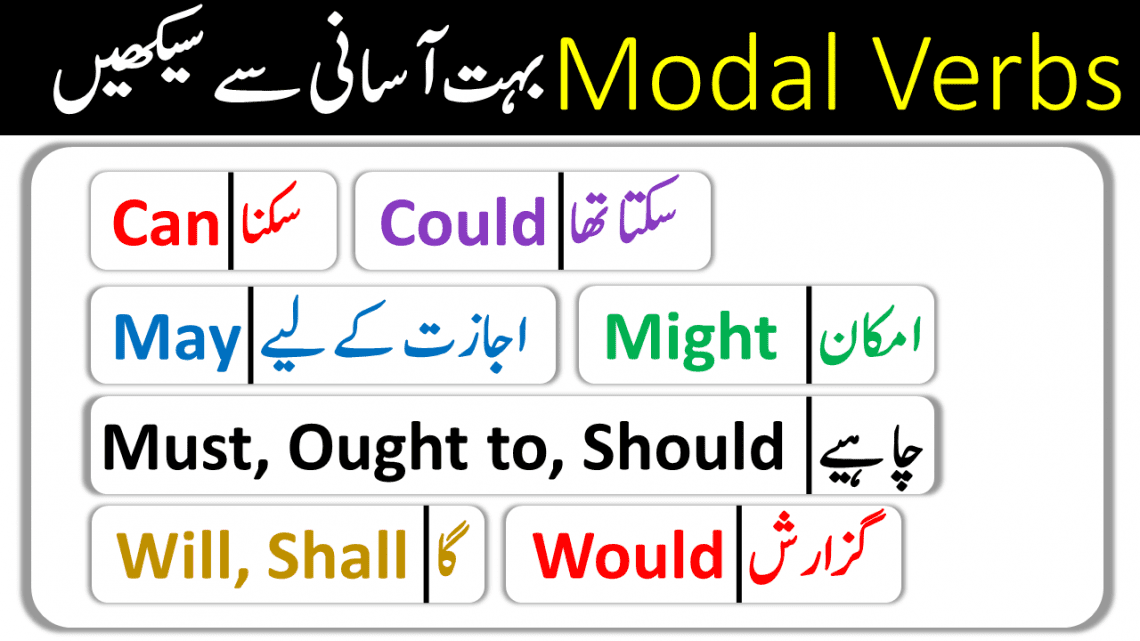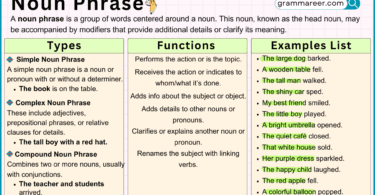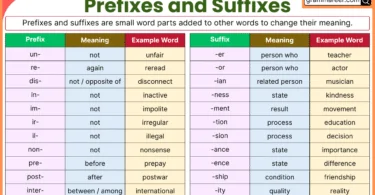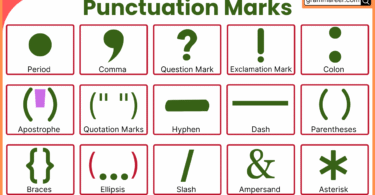Understanding modal verbs is essential for speaking and writing English correctly. These verbs—such as can, may, must, should, and would—help express ability, permission, obligation, probability, and more. Many English learners find them confusing because their meanings change based on context. In this blog post, we’ll explain all modal verbs with Urdu meanings to make learning easier. To strengthen your grammar skills, visit our grammar section for more lessons.
Table of Contents
All Modal Verbs Usage in English
🔹Expressing Ability (قابلیت کے لیے)
✔ Can – Horses can run fast.
➡️ (گھوڑے تیزی سے دوڑ سکتے ہیں۔)
✔ She can dance.
➡️ (وہ ناچ سکتی ہے۔)
✔ Could – They could play cricket in childhood.
➡️ (وہ بچپن میں کرکٹ کھیل سکتے تھے۔)
✔ Be able to – He’ll be able to solve all questions.
➡️ (وہ تمام سوالات حل کرنے کے قابل ہو جائے گا۔)
🔹 Asking Permission (اجازت کے لیے)
✔ May – May I come in?
➡️ (کیا میں اندر آ سکتا ہوں؟)
✔ Can – Can I play here?
➡️ (کیا میں یہاں کھیل سکتا ہوں؟)
✔ Could – Could I go to the park?
➡️ (کیا میں پارک جا سکتا ہوں؟)
🔹 Talking About Possibility (امکان کے لیے)
✔ May – It may snow tomorrow.
➡️ (کل برف باری ہو سکتی ہے۔)
✔ Might – It might rain in the evening.
➡️ (شام میں بارش ہو سکتی ہے۔)
✔ Can – Can it be true?
➡️ (کیا یہ سچ ہو سکتا ہے؟)
✔ Could – He could arrive anytime.
➡️ (وہ کسی بھی وقت آ سکتا ہے۔)
Making Requests (درخواست کے لیے)
✔ May – May I have some more sugar?
➡️ (کیا میں تھوڑی چینی لے سکتا ہوں؟)
✔ Might – Might I have the pen, please?
➡️ (کیا میں پین لے سکتا ہوں؟)
✔ Can – Can you call me this afternoon?
➡️ (کیا آپ مجھے دوپہر میں کال کر سکتے ہیں؟)
✔ Could – Could you lend me 5000 USD?
➡️ (کیا آپ مجھے 5000 ڈالر ادھا دے سکتے ہیں؟)
✔ Will – Will you please answer my question?
➡️ (کیا آپ میرے سوال کا جواب دیں گے؟)
✔ Would – Would you please help them?
➡️ (کیا آپ ان کی مدد کریں گے؟)
🔹 Expressing Duty (فرض کے لیے)
✔ Must – You must offer 5 prayers a day.
➡️ (ہمیں دن میں پانچ نمازیں پڑھنی چاہئیں۔)
✔ Should – You should be kind to the children.
➡️ (تمہیں بچوں پر شفقت کرنی چاہیے۔)
✔ Ought to – You ought to obey the traffic rules.
➡️ (تمہیں ٹریفک قوانین کی پاسداری کرنی چاہیے۔)
🔹 Giving Advice (نصیحت کے لیے
✔ Must – You must visit the doctor immediately.
➡️ (تمہیں فوراً ڈاکٹر کے پاس جانا چاہیے۔)
✔ Should – You should see the dentist once a year.
➡️ (تمہیں سال میں ایک بار ڈینٹسٹ کو دکھانا چاہیے۔)
✔ Ought to – You ought to study more next year.
➡️ (تمہیں اگلے سال زیادہ پڑھنا چاہیے۔)

Giving Orders (حکم دینے کے لیے)
✔ Must – You must do the dishes first.
➡️ (تمہیں پہلے برتن دھونے ہیں۔)
✔ Shall – You shall bring your homework tomorrow.
➡️ (تمہیں کل اپنا ہوم ورک لانا ہے۔)
✔ Will – You’ll stay at home tonight.
➡️ (تم آج رات گھر پر ہی رکو گے۔)
🔹 Making Deductions (قیاس/اندازہ لگانے کے لیے)
✔ Must – He must be about thirty years old.
➡️ (وہ تقریباً تیس سال کا ہوگا۔)
✔ Can’t – She can’t be wrong.
➡️ (وہ غلط نہیں ہو سکتی۔)
✔ Couldn’t – It couldn’t be Ahsan.
➡️ (یہ احسن نہیں ہو سکتا۔)
✔ Will – That will be our friend wearing a hat.
➡️ (یہ ٹوپی پہننے والا ہمارا دوست ہوگا۔)
✔ Would – They would be in Lahore.
➡️ (وہ لاہور میں ہوں گے۔)
✔ Should – She should be at home this time.
➡️ (اس وقت وہ گھر پر ہونی چاہیے۔)
🔹 Prohibition (منع کرنے کے لیے)
✔ Mustn’t – You must not give cigarettes to her.
➡️ (اسے سگریٹس مت دینا۔)
✔ Can’t – You can’t smoke in this room.
➡️ (آپ اس کمرے میں سموک نہیں کر سکتے۔)
✔ May not – You may not open the door.
➡️ (آپ دروازہ نہیں کھول سکتے۔)
🔹 Giving Invitations (دعوت دینے کے لیے)
✔ Will – Will you please join us!
➡️ (ہمیں جوائن کریے نا پلیز۔)
✔ Would – Would you like to have a drink, please!
➡️ (آپ ڈرنک لیں گے؟)

Modal Verbs for Habits (عادات کے لیے)
✔ Used to – She used to play tennis every Sunday.
➡️ (وہ ہر اتوار کو ٹینس کھیلا کرتی تھی۔)
✔ Would – She would go to the market every Sunday.
➡️ (وہ ہر اتوار کو بازار جاتی تھی۔)
📌 Tip: “Used to” and “Would” describe past habits that are no longer done.
You May Also Like






